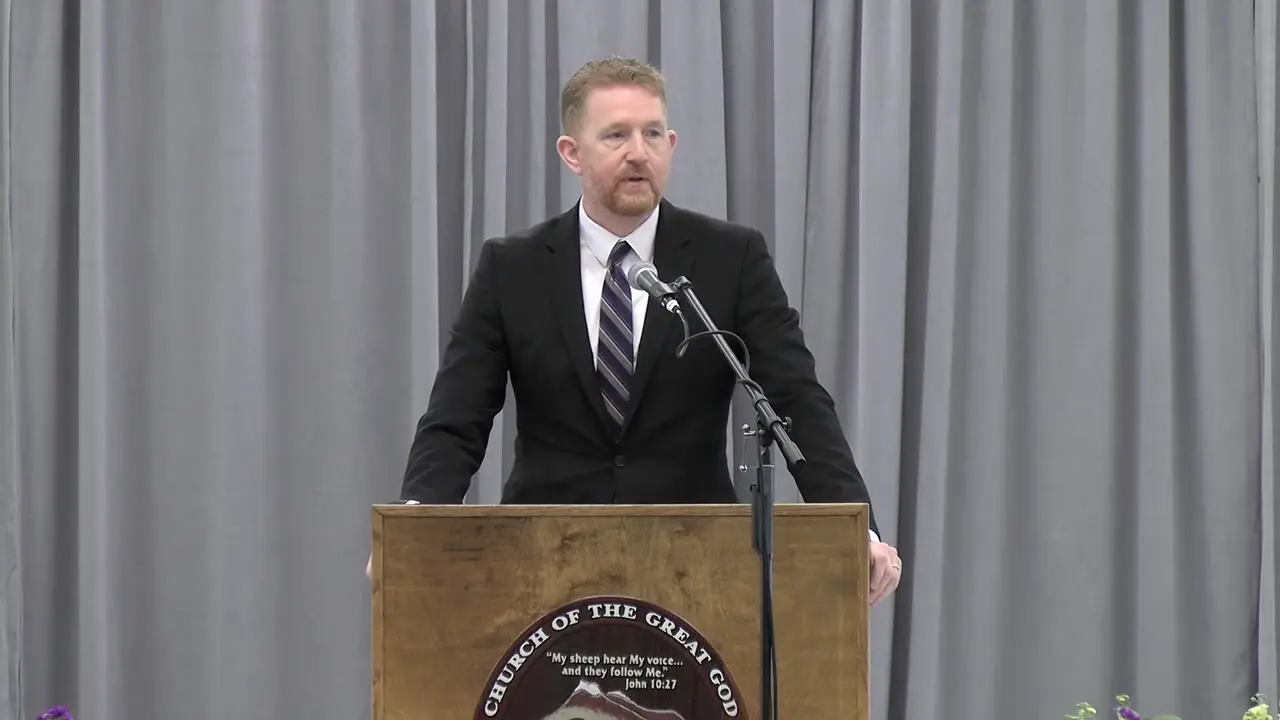Filter by Categories
The First Day of Unleavened Bread (Part One)
Sermon by John W. RitenbaughPassover takes place at twilight as the 14th of Abib begins. Unleavened Bread begins 24 hours later on the 15th of Abib. The Passover is a preparation day.
The First Day of Unleavened Bread (Part Two)
Sermon by John W. RitenbaughThe term 'selfsame day' refers to the covenant God made with Abraham 430 years before the Exodus, which occurred on the day after the Passover.
Lessons From the Eighth Day
Sermonette by David C. GrabbeThis insightful message explores the profound spiritual meaning of the Eighth Day, a festival which concludes God's Holy Day cycle. While Scripture seems to give very few direct instructions, deeper study reveals it is a culminating and sacred assembly (atzeret) focused not on rejoicing or sacrifices, but instead on retention, reflection, and renewal. The Eighth Day connotes both completion and new beginnings. Biblically, the number eight signifies abundance, regeneration, and new life, as we see in circumcision, priestly consecration, and purification laws, all of which identify transition from preparation to fulfillment. For example, for seven days, God's people dwell in temporary booths, feasting and learning, but on the Eighth Day, they pause solemnly to retain what was gained, dedicating themselves anew to God. This solemn day depicts the ultimate fulfillment of God's divine plan. Just as the priests, after seven days of consecration, saw the glory of God appear on the eighth day, similarly, after 7000 years of human history, finally the Eighth Millennium will dawn, when all creation is made new, death is destroyed, and God dwells eternally with His people (Revelation 21). Consequently, we as God's chosen saints must reflect on what God has produced in us, offering ourselves as His portion, entering a new beginning of consecrated service, anticipating the time when God is all in all, making abundance, joy, and perfection eternally complete.
Deuteronomy 16:1-8
Sermonette by John W. RitenbaughDeuteronomy 16:1-8 refers to Unleavened Bread rather than Passover (a scribal error, perhaps referring to the season). Ten clues clear up this misconception.
An Extraordinary Feast
'Ready Answer' by Mark SchindlerAre we merely performing a ritual or are we making sure the real point of deleavening and keeping these days does not get lost in the physical activity?
The Way, The Truth, and the Life
Sermonette by Clyde FinkleaThe Feast of Unleavened Bread is a remembrance of the release from bondage. We eat unleavened bread as a sign that the Lord's law may be in our mouths.
Truly Unleavened
Sermon by Richard T. RitenbaughGod has imputed righteousness to us as His Children because we are in Christ. Our state before God is unleavened provided we maintain this relationship.
James and Unleavened Bread (Part One)
Sermon by Richard T. RitenbaughThe book of James applies to us after the sanctification process has begun. The most effective way of eliminating sin is to do righteousness.

The Feasts of Tabernacles and Unleavened Bread
Feast of Tabernacles Sermon by David C. GrabbeIn this message, we learn the divine wisdom and unity within Almighty God's festivals (Leviticus 23) showing how each feast reveals His character, plan, and purpose for humankind. The speaker, using the method of comparison and contrast, exposes a chiastic structure or mirrored design connecting the spring and fall festivals, particularly Unleavened Bread and Tabernacles, both centering on deliverance, dwelling, and dependence on God, forming a complete picture of salvation through Christ. The pattern of one day followed by seven (Passover/Unleavened Bread) and seven days followed by one (Tabernacles/Last Great Day) symbolized the perfection and symmetry of His redemptive plan. Unleavened Bread focuses upon cleansing, sincerity, and feeding on Christ, the Bread of Life. Consequently, when we remove food from our dwellings, we purify every sphere of authority under God, thereby building a stable spiritual house upon Christ. Tabernacles, in contrast, emphasizes impermanence and humility, dwelling in temporary booths, reminding us of our dependence on God's daily provision in the wilderness. Together the permanence of houses and the transience of booths teach us that true security lies not in possessions or comfort but in Almighty God's sustaining presence. The physical symbols of food and dwelling illustrate some divine paradoxes. During Unleavened Bread, food lacks leaven—self-sufficiency and sin—but during Tabernacles, housing lacks permanence—worldly security and control. Through abundance and lack, permanence and transience, God's people learn to dwell in His presence, feed on His Word, and trust His timing.
Faith Over Fear
Sermon by Richard T. RitenbaughWhen it looks like things are out of control, God is busily at work behind the scenes. If we replace anxiety with faith, God will grant us divine peace.

Spiritual Strongholds (Part One): Obedience
Sermon by Martin G. CollinsJoshua quickly acquiesced to God, realizing that it is not a question of God being with us; we must yield unconditionally to the sovereign will of God.
Trumpets and the Fall of Jericho
Sermon by Richard T. RitenbaughOne major incident involving the blowing of trumpets occurred at the outset of Israel's incursion into Canaan, when God brought down the walls of Jericho.
Amos 5 and the Feast of Tabernacles
Sermon by John W. RitenbaughIf we go to the Feast with the goal of physically enjoying, we may lose out on both the spiritual and physical benefits. 'Going through the motions' defiles it.